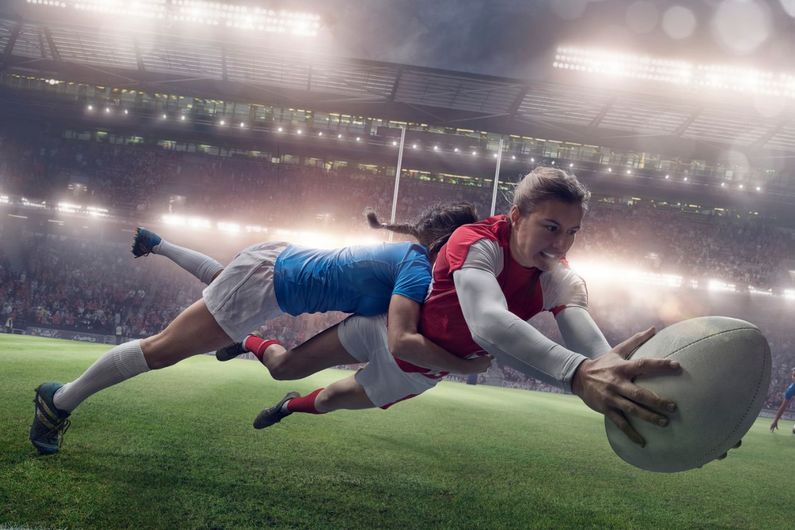When is the right time to start playing again after a concussion?
- UdeMNouvelles
09/20/2023
- Béatrice St-Cyr-Leroux
Physical, behavioural, psychological and social – the factors that make athletes ready (or not) to get back in the game are more complex than you might think.
Nearly 20 per cent of people who play contact sports like hockey or rugby will suffer a concussion in the course of a season. Concussions account for up to 44 per cent of all injuries in these sports.
Caused by a direct or indirect blow to the face, the head or another part of the body, a sports-related concussion typically presents with one or more of the following symptoms: headache, irritability, fatigue, balance problems, memory issues and sleep disorders.
The standard practice for athletes recovering from a concussion is to follow the “return-to-sport strategy,” a six-stage program supervised by a health professional that outlines which physical activities are allowed, based on the athlete’s symptoms and their severity. Once the stages have been completed, the athlete is considered ready to return to the field.
However, this strategy focuses almost exclusively on the physical side of a concussion and pays little attention to other considerations, whether behavioural, psychological of social.
Jeffrey Caron, a professor in the School of Kinesiology and Physical Activity Sciences at Université de Montréal, wanted to find out what factors really make athletes say they are ready to start playing again (or not) after a sports-related concussion.
An exploratory study
To examine this question, Caron recently conducted an exploratory study of athletes who have suffered a concussion, as well as coaches, athletic therapists, physiotherapists, nurse practitioners and sports doctors who regularly work with concussed athletes.
Behavioural, psychological and social factors were identified by participants as important considerations before returning to sport after they're concussed. Many mentioned nervousness about other people’s expectations and social pressure, loss of motivation, fear of collisions (and therefore avoidance of certain situations on the field), loss of confidence, and identity issues (when the sport is part of the athlete’s self-awareness).
“We see that some athletes change their behaviour when returning to sport after a concussion,” said Caron. “They avoid contact or play more passively, even after the doctor has cleared them to return. We can therefore assume that they aren’t quite ready to play, even though they’ve gone through the stages in the strategy.”.
Need for a safe space
Caron sees the study as a first step toward better management of concussions in sports. “These findings suggest that we need to create safe and healthy psychosocial environments for concussed athletes, rather than assessing only their cognitive and physical abilities,” he said.
Caron believes that further research with larger samples of athletes, coaches and health professionals is needed.
“Then we’ll be able to determine whether the return-to-sport strategy needs to be reviewed in order to more fully address all the factors involved in a sports-related concussion, in addition to normalizing emotions such as fear, the erosion of confidence and motivation, and anxiety."














